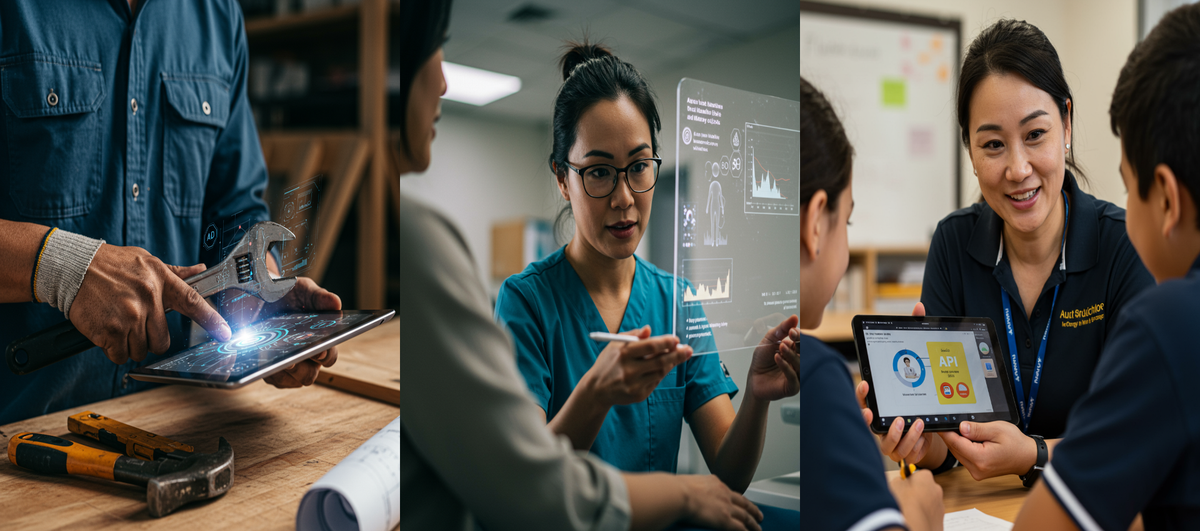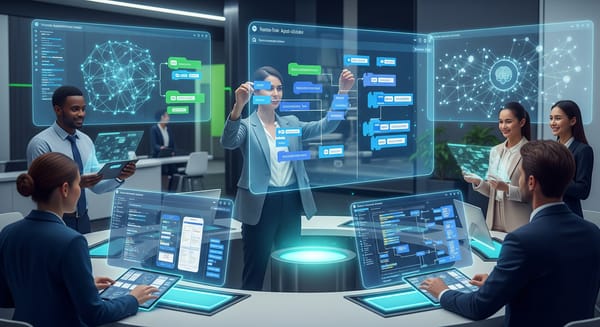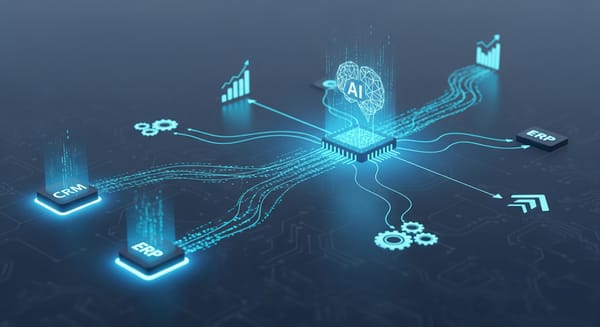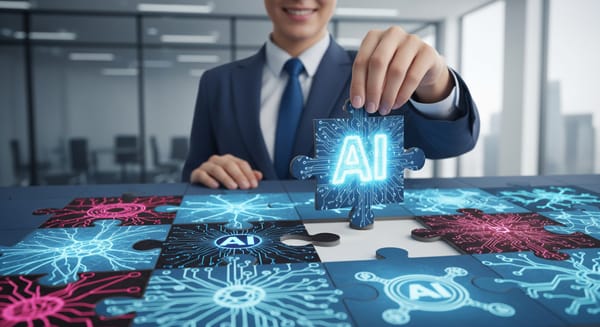AI and the Australian workforce: the great inversion

Everywhere you look, the conversation around AI is heating up. We're seeing powerful new tools from companies like Google, Microsoft and OpenAI, and it's hard not to wonder what this means for our jobs. Will AI automate us out of existence? Or will it usher in a new era of productivity and creativity?
The answer is more nuanced than a simple "yes" or "no." Doing some research, I suggest that for Australia, the impact of AI is not a sweeping, apocalyptic event. It's something far more interesting and complex: a fundamental reorganisation of our labour market. It's what could be termed the "Great Inversion."
For decades, the fear of automation was focused on blue-collar workers. We pictured robots on a factory floor or machines replacing cashiers. But generative AI has changed the game. Because it excels at manipulating and creating information, it's now our high-wage, knowledge-based jobs that are most vulnerable to disruption.
Think about it, many of the tasks of a bookkeeper, a legal assistant, or a data entry clerk involve processing and organising information. These are exactly the kinds of tasks AI can do with incredible speed and accuracy.
Conversely, the jobs that require hands-on physical work, emotional intelligence, and complex human interaction are becoming more resilient than ever.
Based on recent studies by Jobs and Skills Australia and others, we can get a clearer picture of this inversion.
Occupations at High Risk of Displacement:
- Clerical and Administrative: Data entry clerks, bookkeepers, and receptionists.
- Routine Knowledge Work: Accountants, market analysts, and some entry-level programmers.
- Standardised Content Creation: Proofreaders, copy editors, and even some journalists.
The good news? This doesn't mean your entire job will disappear. It's more likely that AI will take over your most repetitive tasks, freeing you up to focus on the more challenging and creative parts of your work.
Occupations Poised for Growth and Resilience:
- The Trades: Electricians, plumbers, carpenters, and mechanics. AI can't fix a broken pipe or wire a house.
- Healthcare and Human Services: Nurses, teachers, social workers, and therapists. The core of these professions, empathy, communication, and emotional nuance is uniquely human.
- AI-Native Roles: As the AI industry grows, so do the jobs that support it, such as AI Engineers, Data Scientists, and AI Ethicists. These are roles that didn't even exist a decade ago.
Some studies project that more jobs will be created by AI than will be lost. While that's an encouraging statistic, it hides the real challenge. The skills required for an AI Ethicist are vastly different from those of a data entry clerk. This creates a severe "skills mismatch" in the economy.
The real task ahead is to re-skill millions of people quickly and effectively. This isn’t a small problem, and it requires a society-wide solution.
The AI industry and "Big Tech" have a monumental responsibility to manage this transition responsibly. Their social licence to operate depends on it.
A "social licence" is the implicit trust that a company earns from the public to operate its business. When trust is broken such as a biased hiring tool or a lack of transparency, it's not just an ethical failure, it's an economic one. Projects can be derailed, and public confidence can be lost.
To earn this licence, tech companies must:
- Be Transparent: Explain how their AI systems work, where they source their training data and what their models are used for in clear, plain language.
- Address Bias: Actively audit and work to eliminate biases that can lead to unfair outcomes.
- Invest in the Workforce: Contribute to the solution by funding and developing re-skilling programmes. This could mean partnering with educational institutions or providing free training.
For Australian policymakers and businesses, this isn’t just a nice-to-have; it's an essential strategy for a prosperous future. A proactive approach from government to AI governance is a great start, but businesses must also step up and prioritise people over pure profit.
So, what does this mean for you?
First, don't panic. AI is more of a partner than a competitor. It's no coincidence that Microsoft brands their AI tools "Copilot" as a direct reflection. Second, embrace a mindset of lifelong learning. The skills that will serve you best in the future are a blend of technical AI literacy and timeless human aptitudes like critical thinking, empathy, and creativity.
The future of work is not about whether humans will be replaced by machines, but about how we will work alongside them. It is a future that we, together with community, business, government and "Big Tech" have the power to shape. This needs to be now and it needs to be intentional in order to reap the rewards of productivity and innovation, without creating parallel social challenges associated with large-scale job displacement.




